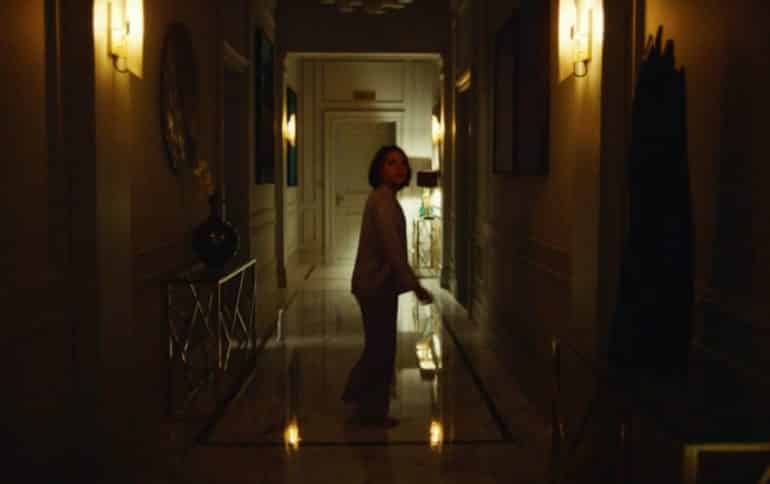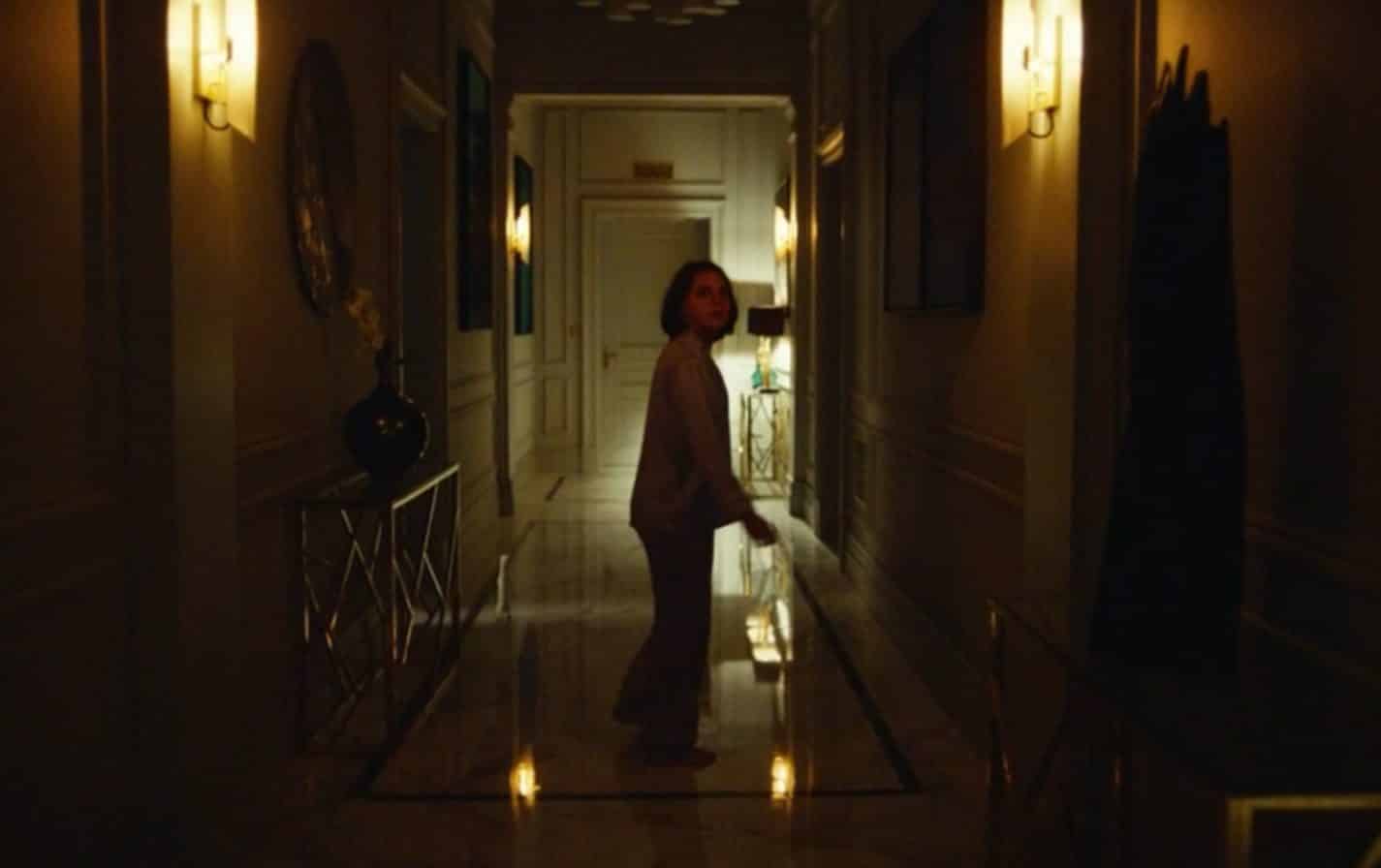The Idea of North moves the action – not to the North, which for now remains both ultimate goal and pipe-dream, but to the Materiverse’s version of London. The jump from turn-of-the-century bicycles-and-cobblestones Oxford to a palatial gilded-age apartment building seems like a jump into another world, which is ironic for a number of reasons, perhaps first among them that those two settings aren’t drawing on particularly different time-frames.
So in that way, you can chalk up another reason why the BBC is the natural home of an adaptation like this. My sources claim that the Isle of Wight is now completely given over to the storage of the BBC’s fearsome bank of period costumes.
Of course, the BBC is also the channel of Doctor Who – which is when all’s said and done a children’s show full of silly prosthetics and flibbertigibbets of all kinds, but also regularly goes heavy enough to have those selfsame kids hiding behind the sofa. Particularly impressive when you consider that in the old days, they were doing that with egg whisk robots, people wearing tin foil, and, on at least one occasion, condoms filled with shaving foam.
And likewise, The Idea Of North conjures up a medley of horrors without the need for many elaborate accoutrements. There’s nothing splashy, nothing graphic, although there’s a moment when that art deco penthouse seems to turn into the awful corridors of The Shining’s Overlook Hotel. No, rather it’s hitting at the two ends of the spectrum in a way that rolls them back around into one. At the one level, it’s the childish fairytale favourite of the wicked stepmother. And by contrast, well, some of the things you chuckled through as a child can stop you dead in your tracks when you come back to them less innocent.
The ongoing plotline with the gobblers throws into sharp relief exactly what’s happening to Lyra. From the inside, as a child, the abuse of children obviously seems more real, more immediate it’s something which could happen to you. So it’s curious that it’s only on reaching a certain age, and a certain level of abstraction, that it becomes the worst of crimes, something Jesus himself was quite clear about when telling people who do it to literally go and drown.
(This, of course, comes back to the innocence vs. experience dichotomy, the crux of some of the best works ever written in the English language – first and foremost of course being His Dark Materials’ forebear Paradise Lost, but also the works of William Blake.)
One of His Dark Materials’ strengths was always its ability to adopt the distinct viewpoint of the child. This is how you get Lyra invoking the vague, nebulous mass of ‘grown-ups’, the General Oblation Board becoming the ‘gobblers’, and, to bring in the religious side of things, how you get the child characters’ sense of boundless-until-comphrehensively-disproven faith, in Lyra’s case for Lord Asriel, and in Roger’s case, somewhat more tragically, for Lyra.
It should be stated this isn’t the same as making it a childish work. It’s not an elephant who’s lost their balloon, put it that way. It’s typically children’s works which deal with issues of straight-out good and evil – as established earlier, making it ‘for children’ can let you jiu-jitsu in some incredibly serious, heavy topics.
A fault of circumstance, but a fault nevertheless, is that Pantalaimon never seems to actually touch Lyra – which seems more prominent here in The Idea Of North, since now they’re a pair alone against the world. This is of course a practicality thing, since he’s a creation of pure CG, but it casts their relationship as a lot less intimate than it should be – and casts Pan as more of a jolly talking animal companion, less as the other half of Lyra’s soul. Which is an aspect of the relationship which this episode touches on very strongly elsewhere, so even if it’s not a fault, then it’s certainly a mixed message.
(Contrast the times we do see people touching their dæmons – when some creepy Magisterium thug has a beetle dæmon riding on their face, this clearly isn’t meant to be a plus point.)
The alethiometer is currently suffering from a similar problem of being there, but not having quite as close a relationship to Lyra as it should. Quite frankly, it’s gone beyond being a Chekov’s Gun and is now just The Important Thing That Is Important. There’s two separate moments in this episode which are tailor-made to have it spring into action and start playing a part in events, but it never quite gets around to it.
This is particularly odd because other parts of The Idea Of North are very quick to play their hand. Mrs Coulter shows her true colours quickly enough, but what I’m referring more to here is that the show’s started incorporating details from The Subtle Knife, the second of the books, well ahead of time. Strictly speaking it’s nothing out of the blue, and – at a real risk of spoiling now – it’s something which that eye-popping opening credits sequence had suggested very strongly.
The legendary producer David O. Selznick couldn’t be said to have written the book on adaptations, but he probably did make the film version – and, crucially, dictated some long, intricate memos about it. One idea that ran through all his various pointers was to resist the idea to ‘improve’ upon the original work. It has, by definition, been successful enough to warrant a screen adaptation, it doesn’t need the help. But Selz wasn’t a puritan about this, and was open to a certain amount of chopping and changing. He favoured chopping to changing, but moving events up in the running order – even quite a ways up, as it is here – wasn’t off the table.
So this is a borderline case, but what probably keeps it on the right side of the line is that it’s in the B-plots, those undercurrents present to offset Lyra’s story. Because it is, of course, Lyra’s story, that stuff about the child’s perspective earlier wasn’t there for nothing. It also keeps the more fantastical elements knocking about when the A-plot, bar the dæmons, is a painfully realistic two-hander psychodrama. To return to Selznick, The Idea Of North is a lot like the masterful Hitchcock adaptation of Rebecca he produced, but not the Manderley sections everyone remembers – no, if anything, it’s like when we very first meet the unnamed heroine, when she’s stuck on an endless holiday on the riviera with her wealthy patron and has no clear means of escape.
If you missed our review of last week’s episode, ‘Lyra’s Jordan’, catch up here.
Some of the coverage you find on Cultured Vultures contains affiliate links, which provide us with small commissions based on purchases made from visiting our site. We cover gaming news, movie reviews, wrestling and much more.




